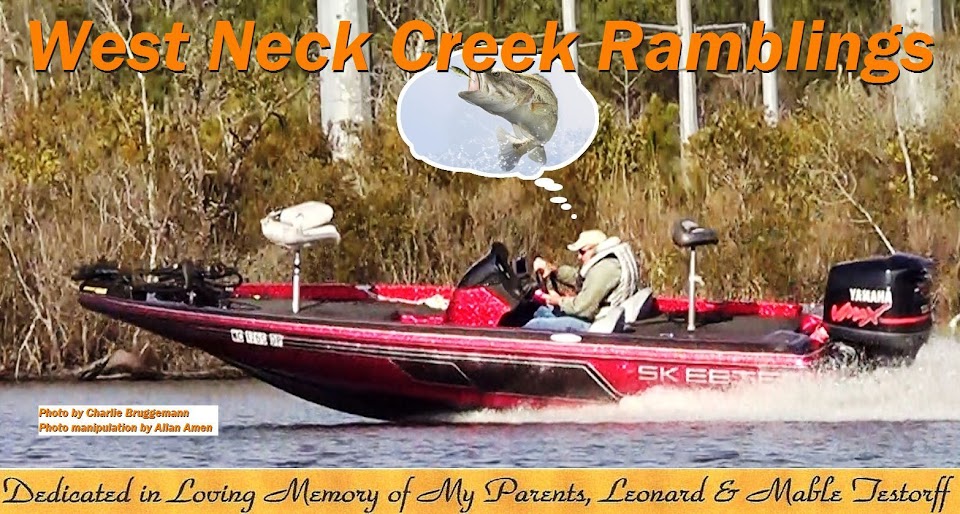By Meg Jones
Ask Ronald Frisk why his collection of bobbers is so large, and he'll tell you it's because some anglers, especially those who head out onto Prairie Lake, don't know what they're doing.Weekends are big because the novices, amateurs, first-timers, and clueless are out on the lake on Saturdays and Sundays, leaving behind the stuff they just bought. Holidays are busy, too.
Frisk's collection of fishing bobbers numbers 1,550 (as of May 23, 2009, when this newspaper story was posted) and counting. Those are just the ones he's pulled out of Prairie Lake behind his home in Cameron in northwestern Wisconsin. He's found a lot more, but he gives some away to friends.
Pretty much every heavily fished lake in the state has lots of fishing gear that once graced tackle boxes but got snagged, lost and caught, prompting the angler to get disgusted and leave without it.
"I don't know why they leave them," Frisk said from his backyard.
"Because they've got money," chimed in his wife, Irene.
Aside from the bobbers, he also has a sizable collection of jigs, spinners and lures.
Some bobbers look like they've been in the lake since a retired Dwight Eisenhower fished in northern Wisconsin (in 1956), and some look like they were taken out of the package five minutes ago. Some come from Hungary, a couple light up, one says "Wisconsin DNR Help Keep Our Lakes Clean," and a few are made from wood and cork. "Some are at least 50 years old," Frisk said.
Kneeling down over the pile of bobbers, he plucked out a few. "Here's one that says 25 cents, this one is 30 cents. Here's one with a happy face," he said, noting that bobbers now go for 50 cents to a couple of bucks, with lighted bobbers costing around $3 apiece.
Frisk made himself a bobber retriever out of a 16-foot aluminum pole and a beer-can-sized wire-mesh basket. He uses it to free bobbers from trees, where they got snagged after inattentive anglers cast without getting the lay of the land.
Three times, he's seen birds in trees entangled in fishing lines. He rescued two of them, both chickadees with hooks in their mouths, and the third bird was dead when he discovered it.
After weekends and holidays, he heads out on Prairie Lake to look for bobbers, jigs and lures that he sees floating in the water or along the shore, in trees and caught on debris. A lot of times, finding one wayward bobber leads to the discovery of more. He's been doing this for two decades.
"I'm out here on the lake all the time. People pick up litter off the road. I thought I'd pick up on the lake," he said.
Before Irene married Ronald 49 years ago, her soon-to-be mother-in-law gave her a tip, which turned out to be true. She said, "You won't see him much during the summer."
That's because Frisk loves to fish. He said he's been fishing since he was in diapers, figures he's caught 100,000 or so. He bought a home on Prairie Lake, which is part of the Chetek chain of lakes, after he retired from his steel-mill job in Indiana, just so he could walk out his front door and fish whenever he wants.
Does he catch and release? "I catch and release them in a bucket. I catch 'em to eat 'em."
Frisk also makes his own jigs in a small workroom in his garage. He sells them at local taverns under the name Link Lures.
The odd part about his collection of bobbers is that Frisk doesn't fish with them--he prefers adjustable torpedo bobbers, and he's never managed to find those while scouring Prairie Lake.
Irene Frisk doesn't mind her husband's vocation, nor the fact that he's out on the lake so often.
"It keeps him busy. It keeps him out of my hair. He enjoys going out after the weekend and cleaning up after the people who can't throw straight," she said.
About the author...Meg Jones is a journalist and war correspondent who frequently writes about the military, history and veterans issues for her hometown Milwaukee Journal Sentinel. On four trips to Iraq as an embedded reporter and another four trips to Afghanistan, between 2003 and 2014, Meg followed Wisconsin troops as they performed their missions in war zones. Born in Rhinelander, Wis., which officially makes her a Hodag ("a fearsome critter," according to Wisconsin folklore), Jones grew up in Milwaukee and earned degrees in journalism and history at the University of Wisconsin-Madison, where she worked as a reporter and photographer for campus newspapers, played in the UW marching band, and rowed on the Badger crew team. She was a reporter for daily newspapers in Marinette, Shawano and Wausau, Wis., and worked for USA Today before being hired by The Milwaukee Sentinel shortly after The Sentinel merged with The Milwaukee Journal. She taught journalism at Marquette University for more than a decade. Jones was a Pulitzer finalist at The Milwaukee Journal Sentinel as part of a team that covered the outbreak of chronic wasting disease in Wisconsin's whitetail deer herd.




No comments:
Post a Comment